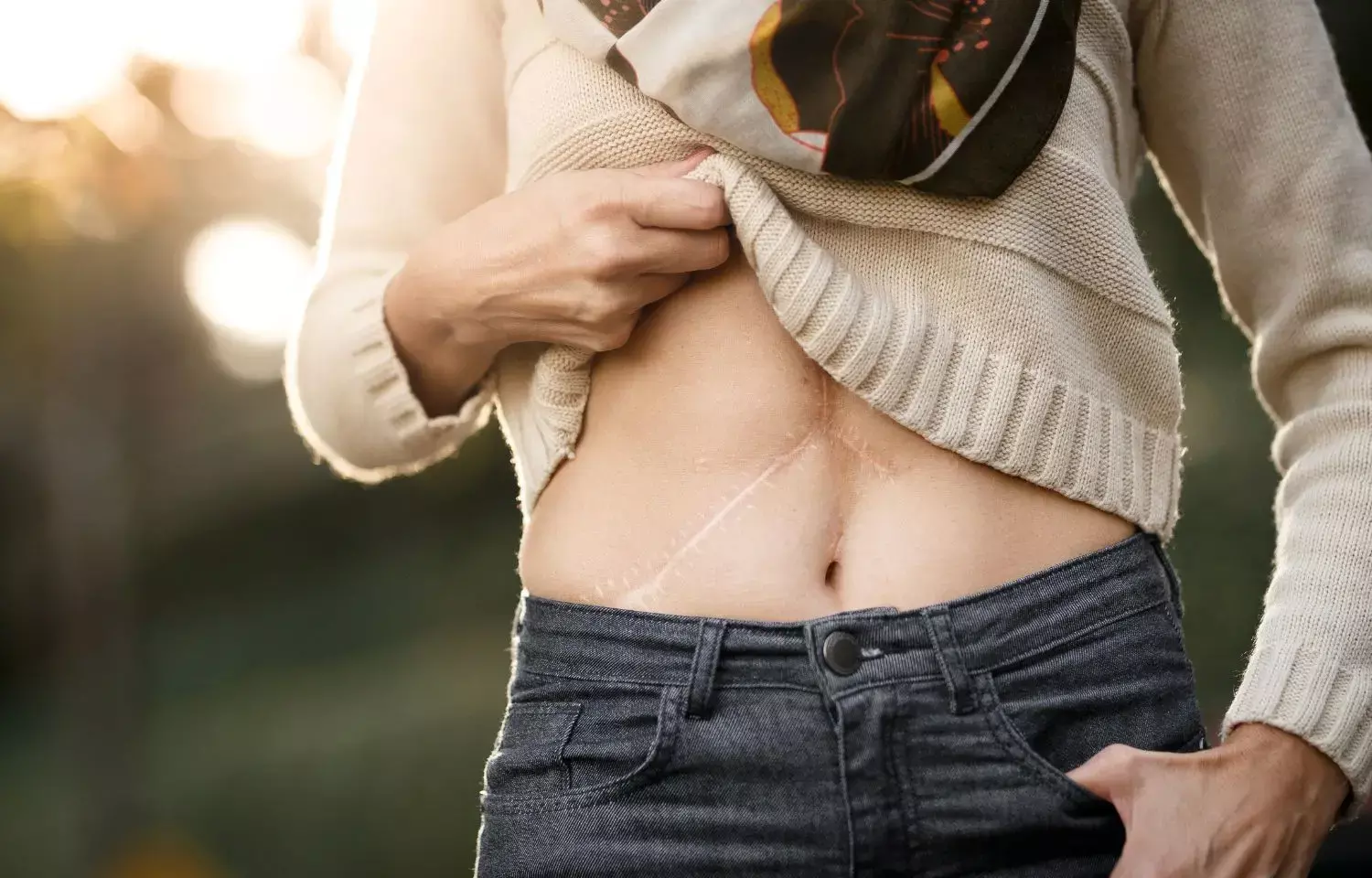- Home
- Medical news & Guidelines
- Anesthesiology
- Cardiology and CTVS
- Critical Care
- Dentistry
- Dermatology
- Diabetes and Endocrinology
- ENT
- Gastroenterology
- Medicine
- Nephrology
- Neurology
- Obstretics-Gynaecology
- Oncology
- Ophthalmology
- Orthopaedics
- Pediatrics-Neonatology
- Psychiatry
- Pulmonology
- Radiology
- Surgery
- Urology
- Laboratory Medicine
- Diet
- Nursing
- Paramedical
- Physiotherapy
- Health news
- Fact Check
- Bone Health Fact Check
- Brain Health Fact Check
- Cancer Related Fact Check
- Child Care Fact Check
- Dental and oral health fact check
- Diabetes and metabolic health fact check
- Diet and Nutrition Fact Check
- Eye and ENT Care Fact Check
- Fitness fact check
- Gut health fact check
- Heart health fact check
- Kidney health fact check
- Medical education fact check
- Men's health fact check
- Respiratory fact check
- Skin and hair care fact check
- Vaccine and Immunization fact check
- Women's health fact check
- AYUSH
- State News
- Andaman and Nicobar Islands
- Andhra Pradesh
- Arunachal Pradesh
- Assam
- Bihar
- Chandigarh
- Chattisgarh
- Dadra and Nagar Haveli
- Daman and Diu
- Delhi
- Goa
- Gujarat
- Haryana
- Himachal Pradesh
- Jammu & Kashmir
- Jharkhand
- Karnataka
- Kerala
- Ladakh
- Lakshadweep
- Madhya Pradesh
- Maharashtra
- Manipur
- Meghalaya
- Mizoram
- Nagaland
- Odisha
- Puducherry
- Punjab
- Rajasthan
- Sikkim
- Tamil Nadu
- Telangana
- Tripura
- Uttar Pradesh
- Uttrakhand
- West Bengal
- Medical Education
- Industry
Hypothermic oxygenated perfusion for human liver grafts before transplantation tied to less complications

A new study published in the Journal of Hepatology suggests that similar numbers of patients with at least one ≥ III complication were seen in hypothermic oxygenated perfusion (HOPE) following cold preservation of donated after brain death (DBD) livers as compared to controls.
A cutting-edge technique called machine perfusion aims to improve livers before donation. Its impact on morbidity one year after transplantation is yet unknown, though. The purpose of this study, which was carried out by Andrea Schlegel and colleagues, was to evaluate the effectiveness of machine perfusion and its long-term effects.
For the liver transplantation (LT) component of this multicenter controlled experiment, researchers randomly randomized livers given after brain death. Traditional cold storage of the livers (control group) or cold storage followed by 1-2 hours of hypothermic oxygen perfusion before implantation (HOPE group) were both used. The main goal was to determine if each patient experienced at least one post-transplant problem within a year after LT, with a Clavien score of III. Secondary objectives were the comprehensive complication index (CCI), laboratory variables, length of hospital and critical care unit stay, graft survival, patient survival, and biliary problems.
The key findings of this study were:
1. Researchers randomly assigned 177 livers between April 2015 and August 2019, leading to 170 liver transplants (85 in the HOPE group and 85 in the control group).
2. In the control group, there were 46/85 (54.1%) patients with at least one Clavien III complication, compared to 44/85 (51.8%) patients in the HOPE group.
3. Secondary endpoints did not differ across groups differently either.
4. According to a post hoc study, the HOPE group experienced fewer liver-related Clavien IIIb problems than the control group.
5. The HOPE group did not experience graft failure as a result of liver-related problems, while the control group did (7%, or 6 of 85 cases).
Reference:
Schlegel, A., Mueller, M., Muller, X., Eden, J., Panconesi, R., von Felten, S., Steigmiller, K., Sousa Da Silva, R. X., de Rougemont, O., Mabrut, J.-Y., Lesurtel, M., Monbaliu, D., Haring, M. P. D., Porte, R. J., … Dutkowski, P. (2023). A multicenter randomized-controlled trial of hypothermic oxygenated perfusion (HOPE) for human liver grafts before transplantation. In Journal of Hepatology (Vol. 78, Issue 4, pp. 783–793). Elsevier BV. https://doi.org/10.1016/j.jhep.2022.12.030
Neuroscience Masters graduate
Jacinthlyn Sylvia, a Neuroscience Master's graduate from Chennai has worked extensively in deciphering the neurobiology of cognition and motor control in aging. She also has spread-out exposure to Neurosurgery from her Bachelor’s. She is currently involved in active Neuro-Oncology research. She is an upcoming neuroscientist with a fiery passion for writing. Her news cover at Medical Dialogues feature recent discoveries and updates from the healthcare and biomedical research fields. She can be reached at editorial@medicaldialogues.in
Dr Kamal Kant Kohli-MBBS, DTCD- a chest specialist with more than 30 years of practice and a flair for writing clinical articles, Dr Kamal Kant Kohli joined Medical Dialogues as a Chief Editor of Medical News. Besides writing articles, as an editor, he proofreads and verifies all the medical content published on Medical Dialogues including those coming from journals, studies,medical conferences,guidelines etc. Email: drkohli@medicaldialogues.in. Contact no. 011-43720751


